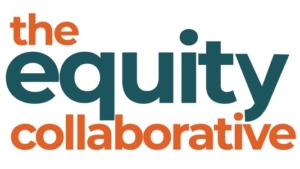In this video, Jamie demonstrates his coaching approach to help an instructional leader address a racial equity challenge in her school.
Working with Schools and School Districts
To improve student performance, schools and school districts must create a strong change management plan that builds teacher capacity around curriculum, assessment, and instructional design, as well as leader and coach capacity to support teachers in these areas. Unfortunately, most school systems are not well equipped for this transition. Departments are siloed and fragmented. Collaboration time is bounded and inadequate. And even when they’re together, teachers often lack the sense of a team identity and the habits of meaningful collaboration that lead to real improvement.
The Equity Collaborative brings particular expertise in fostering cultures of collaboration and inquiry while designing structures that promote these habits of mind and work. We move beyond a traditional, external professional-development-provider model. We work shoulder-to-shoulder with organizational leaders to design and lead sustainable structures for change. We support leaders to identify, incubate, and scale effective approaches to teaching and learning, including:
- The codification of an integrated approach to instructional methodology, Responsiveness to Instruction, and Positive Behavior Intervention and Supports through an equity-based framework.
- A culture of professional development that fosters educators’ intrinsic motivation to change and promotes collaboration and data-driven inquiry.
- A collaborative approach to engaging parent and community support that will complement changes within the district.
Working with Youth Development Organizations
Youth development organizations often share common goals of assisting marginalized youth and their families. Because of the demographics of staff and board members, most organizations must develop an approach for working effectively across racial, cultural, and class-based differences. Many organizations also often feel limited in their ability to help clients because of the inflexibility of larger systems (schools, child welfare, workforce development, etc.). The most effective organizations combine their direct service work with effective systemic advocacy. In other words, they help individuals while also changing the world. Here’s what we bring to the table:
- A reflective approach to working across lines of difference.
- Helping marginalized people have access to mainstream power and resources.
- Re-centering organizational culture around the youth and families served rather than donors and volunteers.
- A collaborative approach to engaging youth and parent voices that will assist with efforts to advocate for systemic change.
Find out more about our educational equity services.

